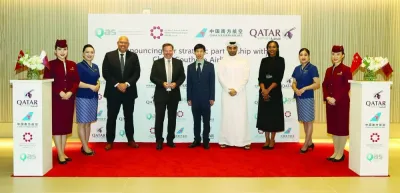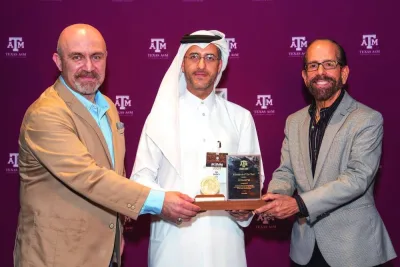While airlines continue to struggle with endless border closures, quarantine laws, and lack of government financial support in some of the hardest-hit areas on the planet, the important role airlines play in ensuring a connected world (albeit currently with cargo instead of passengers) has never been as important as now amid the global vaccine rollout.
Instead of passengers, it’s vaccines that are flying around the world, racking up air miles and entering nations quarantine free. This week, more than 142,000 doses of the Pfizer/BioNTech Covid-19 vaccine arrived at Sydney Airport. The doses were flown from Europe to Australia via Singapore on a Singapore Airlines A350-900 — an airline and aircraft more than familiar with the ‘Kangaroo route’ – but these days faced with an almost empty flight schedule amid global border closures and endless pandemic related restrictions.
With the vaccine rollout being the focus of the world, the UN has now firmed up agreements with leading airlines for the most important mission in recent history: The transport of vaccines, and other life-saving supplies worldwide. These airlines have signed agreements with UNICEF to support the prioritisation of delivery of Covid-19 vaccines, in addition to essential medicines, medical devices and other critical supplies to respond to the pandemic.
The participation of the airline industry is vital to support equal access to vaccines worldwide. The initiative will also act as a global logistics preparedness mechanism for other humanitarian and health crises over the longer term and should better prepare the world for future epidemics.
Air France KLM Martinair Cargo, Astral Aviation, Brussels Airlines, Cargolux, Cathay Pacific, Emirates SkyCargo, Etihad Cargo, Ethiopian Airlines Cargo, IAG Cargo, Korean Air, Lufthansa Cargo, Qatar Airways, Saudia, Singapore Airlines and United are those to sign the agreements which work in conjunction with the UN established a Covid-19 Vaccine Global Access Facility (COVAX) to ensure that less prosperous countries receive enough vaccines.
Based on the COVAX Facility’s indicative distribution and first-round allocation plan, 145 countries will receive doses starting in the first half of 2021 to immunise around 3% of their population, on average, subject to all requirements being met and final allocation plans.
IAG – one of the world's largest airline groups with over 500 aircraft flying across British Airways, Iberia, Aer Lingus, Vueling & Level — have a new pharmaceutical centre in Madrid, dedicated to processing temperature-sensitive pharmaceutical products such as the Pfizer vaccine, which needs to be kept at a temperature of about -70C.
AFKLMP Cargo said it had many years of experience transporting temperature-controlled pharmaceuticals, was the first airline group to be CEIV Pharma certified by IATA and has developed a specific product for the distribution of vaccines.
John Cheetham, chief commercial officer at IAG Cargo, said: “We have many years’ experience flying vaccines around the world, delivering them safely to where they need to be.
“We’ve already transported over 1mn doses of the Covid-19 vaccine across the world, alongside transporting medical equipment, other types of vaccines, Covid-19 testing kits and PPE, as well as continuing to transport everyday products the world needs. Our hub facilities are world-class, and our global team of Constant Climate professionals are specialists in their field and have been preparing for this operation for some time.”
The first 80,000 doses of the Johnson and Johnson Covid-19 vaccine this week touched down at O R Tambo International Airport in Johannesburg. The vaccines were moved to a secure facility in Gauteng from where they will be distributed to vaccination centres in all provinces. The single-dose vaccines will be used to vaccinate frontline healthcare workers in both the private and public sectors.
The size of the ongoing delivery of vaccines is enormous. Just providing a single dose to 7.8bn people would fill 8,000 747 cargo aircraft. Land transport will help, especially in developed economies with local manufacturing capacity, but vaccines cannot be delivered globally without the significant use of air cargo.
Highlighting inequalities of the vaccine rollout in January, the WHO's head, Tedros Adhanom Ghebreyesus, said more than 39mn doses had been administered in at least 49 higher-income countries, but only 25 in one of the lowest-income countries.
That inequality is expected to persist, as research shows most vaccine doses have been purchased by high-income countries. High-income countries currently hold a confirmed 4.2bn doses, while low-middle income nations hold 670mn, according to a research by the Duke Global Health Innovation Centre.
Covax hopes that, by the end of 2021, more than 2bn doses will have been delivered to countries across the world by air travel. Of those, about 1.8bn will be delivered to the 92 poorer countries involved in the scheme, covering around 20% of their populations.
*The author is an aviation analyst.



